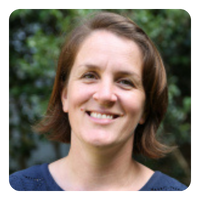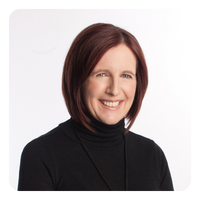This showcase took place in September 2021. The keynote conversation was led by Dr Sally Baker and Sue Kokonis. They explored how education technology can reduce the inequities among students.
What are the equity-related considerations of hybrid learning? This higher education-focused conversation dove into the need for sufficient university and structural support for students, as well as the holistic impacts of remote learning.
Dr Sally Baker, an academic at the University of New South Wales, and Sue Kokonis, Executive Director (Academic) at Online Education Services discussed these key questions:
Unpack student equity?
What are the current trends in issues around student equity?
COVID has exacerbated issues in student equity and access as part of the ‘Digital Divide’. Where are the opportunities in switching to a digital format?
What does technology offer in responding to these problems?
When using analytics, what are the key points to look out for that are most helpful?
How does real-time data collection that is enabled by online platforms support Culturally and Linguistically Diverse (CALD) students?
Unpack student equity?
Dr Sally Baker turned her attention to this space through her own work as a language teacher. From a higher education perspective, if we can look at teaching & learning through the position of a refugee student, then we can better understand their needs for them to be successful. And that the refugee student is not homogenous — each has their own cultural and linguistic differences.
The “non-traditional student” is now a misnomer — the majority of students are now in this category.
Dr Sally Baker, Senior Lecturer at UNSW
What are the current trends in issues around student equity?
Over the last few decades, Australia has created fairly broad categories of students that are “non-traditional”: rural and remote, Indigenous Australian, and low socio-economic. Each group is nuanced. The Big Three.
International students are not normally considered as part of this group, but the pandemic has shown us that this group is quite vulnerable. They are not cash cows. Without the security of ongoing work, it has been challenging for them throughout the pandemic.
We know that online education, however, can provide equity pathways for people that have difficulty accessing campus.
COVID has exacerbated issues in student equity and access as part of the ‘Digital Divide’. Where are the opportunities in switching to a digital format?
Sue Kokonis noticed that because equity students were more used to this online format, they proved to be quite resilient during this switch.
What are the key elements that are important in terms of making the digital opportunities readily available to students?
It’s all about options, says Sally Baker. If we use the principles of online pedagogy with an equity focus, then it’s important we facilitate a sense of belonging and comfort among the cohort. We need to think carefully about teacher presence as well as student presence.
It’s important that students still feel like they’re in the room. We need to think about the best possible opportunities in delivery design.
Dr Sally Baker, Senior Lecturer at UNSW
UDL is a useful framework to use — click here to learn more about Universal Design for Learning.
There are opportunities available online to personalise the learning experience, through design.
This all comes into an ethic of care. If we can respond to student needs without assuming them, and take the time to listen to students, that is the best way forward.
Dr Sally Baker, Senior Lecturer at UNSW
What does technology offer in responding to these problems?
Academics are interested in their practice being as good as it can, but their capacity can be constrained. Therefore, partnerships with the education technology sector can be really helpful
For example, there are inevitable drop-off points for students. With analytics, we can capture these points and better design our curriculums to not fatigue students and to better respond to their needs within the learning experience.
A digital archive of lectures can assist students where English is a second language. Without the linguistic load, they can pause the lecture and take notes at their own pace.
Linear ways of thinking about course design is not always the best way to do it.
When using analytics, what are the key points to look out for that are most helpful?
It’s dependent on the course, but as a lecturer, Sally Baker was able to better design her seminars based off of lecture engagement. If students had not attended or downloaded the lecture, she would not base the seminar too much off of the content within the lecture.
It’s useful to know when and where students are engaged: whether they have clicked certain links, whether they have watched the lecture, and which interactive tools are students genuinely using.
Sue Kokonis said that through her work they did predictive modelling to see if this could indicate student success, and also to see where they were at in their learning journey. If a student had missed an assignment, rather than saying they had simply missed the assignment, they would send a message of understanding and support.
How does real-time data collection that is enabled by online platforms support Culturally and Linguistically Diverse (CALD) students?
Being careful about messaging and reflecting on how students are responding to certain types of messaging is useful. Automation of responses needs to be carefully thought about. Additionally, reminders and engagement with reminders. These can be observed through real-time data collection.
With CALD students, it’s important to not assume that they will come to staff for help.
Belonging comes from welcoming language, but also by having the strategies and structures in place so students can reach out. Whether it’s a convenor or a tutor, so there’s different circles that are made available.
Dr Sally Baker, Senior Lecturer at UNSW
Speakers

Dr Sally Baker
Dr Sally Baker is a Senior Lecturer in the School of Education at the University of New South Wales. Sally’s teaching and research interests centre on language, literacies, transition and equity in higher education, particularly with regard to culturally and linguistically diverse students, and refugee students in particular. Sally is the Chair of the national Refugee Education Special Interest Group for/with students from refugee backgrounds, supported by the Refugee Council of Australia.

Sue Kokonis
With a passion to see education transform lives, Sue Kokonis is a leader in best practice online learning. As the head of OES’s academic leadership team, Sue brings a commitment to excellence to the learning design and delivery teams. Working closely with University partners, she underpins online and blended solutions with deep academic expertise and a strategic focus on nurturing student success. Sue Kokonis is currently the Executive Director (Academic) at OES.

